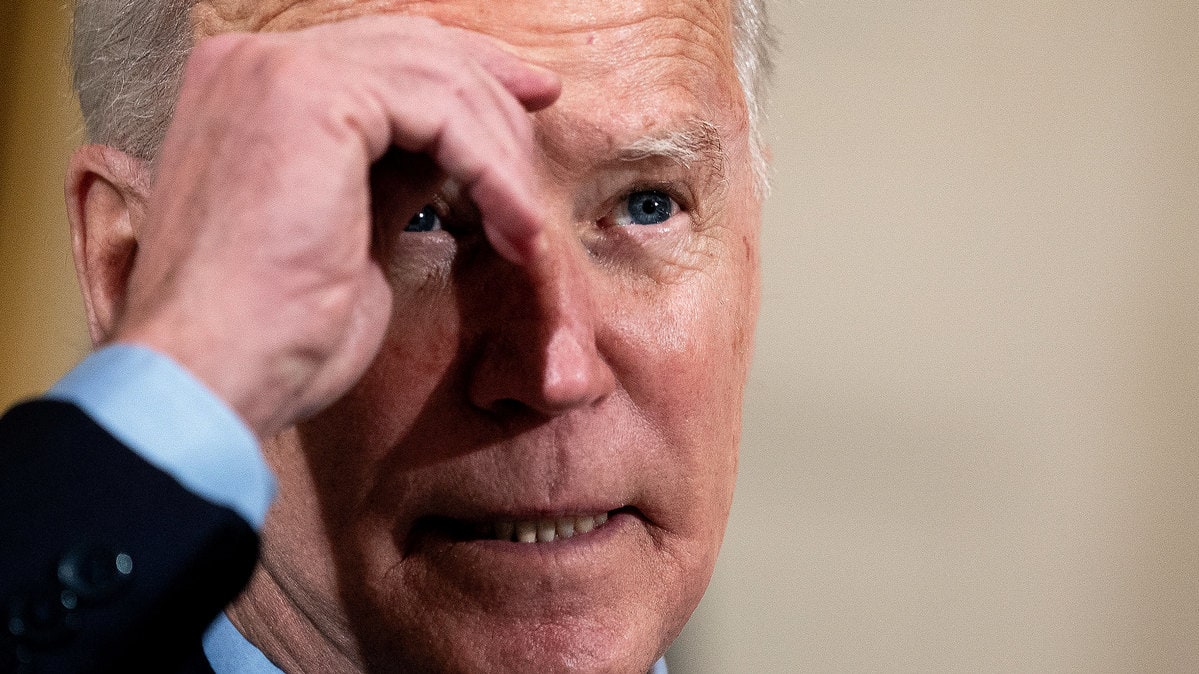President Biden’s foreign policy has shown some encouraging early signs for those invested in breaking with America’s disastrous, decades-old geopolitical trajectory. As The Daily Beast first reported, Biden is extricating the U.S. from the Saudi-led war in Yemen and has placed counterterrorism strikes under review. America is back in the Paris climate accord and the United Nations Human Rights Council. Biden extended the nuclear arms-control framework with Russia. And on Friday, the White House told Politico that it’s embracing a congressional push to repeal certain post-9/11 war powers.
But interviews with half a dozen progressive and socialist activists, Hill staffers, foreign-policy experts and former Obama administration officials in touch with Bidenworld point to deep dissatisfaction over what they consider an alarming drift toward the traditional, bellicose Washington foreign-policy consensus—what former Barack Obama aide Ben Rhodes famously termed “the Blob.”
“This has been a terrible week for Biden’s foreign policy,” said historian Stephen Wertheim of the left/right antiwar Quincy Institute, author of Tomorrow, The World: The Birth of U.S. Global Supremacy. “I credit the Biden administration with picking some low-hanging fruit early. But I refuse to accept a situation where the U.S. can do incredibly destructive and stupid things like aid the war in Yemen and then everyone has to cheer when an administration stops doing such things despite continuing the quest to extend armed dominance across the globe. And since we don’t know yet what exactly the administration’s Yemen policy is, we should remain cautious even on that front.”
A week ago Thursday, the U.S. military bombed an Iranian-backed militia position in Syria in continuing retaliation for attacks on U.S. bases in Iraq, a presence that progressives want to see ended. The Biden administration portrayed those strikes as limited, proportional and an indicator of Biden’s restraint. But Alex McCoy, a former Marine and political director of the antiwar veterans group Common Defense, said the strikes “represent a return to the failed, strategy-free, immaturely belligerent Forever War business-as-usual of the corrupt foreign policy elite.”
Then, the next day, Biden demoralized many on the left by sanctioning the hitmen of Mohammed bin Salman for the grisly murder of Jamal Khashoggi rather than the Saudi crown prince himself, even after releasing the U.S. intelligence assessment pinning the blame on bin Salman.
“The U.S. government said underlings should look out but leaders can get away with murder, and I think that’s a huge blow to the Biden administration’s attempt to prioritize human rights in its engagement with the rest of the world,” said Andrea Prasow of Human Rights Watch. “Why would any other abusive leader feel they have to fear the wrath of the U.S. if they also believe they have something in the US strategic interest, like oil or counterterrorism cooperation?”
More followed this past week. Secretary of State Antony Blinken called Venezuelan opposition leader Juan Guaido, something that raised the prospect of further U.S. intervention to oust strongman Nicolas Maduro. The next day, Wendy Sherman, the administration’s nominee for deputy secretary of state, testified that she wants a “stronger and longer” Iran nuclear accord, something that fellow deal advocates fear will make it harder for the U.S. to re-enter, given that it was the U.S. that first violated the accord. “I worry we may be setting ourselves up for failure,” said progressive Sen. Chris Murphy (D-CT).
Then the administration opposed, on jurisdictional grounds, an International Criminal Court investigation into alleged war crimes committed by Israel and Palestinian militants. Prasow said she was unsurprised by the administration’s ICC criticism but noted that an administration loudly declaring itself to represent the return of U.S. diplomacy has yet to revoke Trump-era sanctions on the ICC itself, including its chief prosecutor.
Added to that is uncertainty around pivotal foreign-policy decisions still in flux—especially about the future of the 20-year War on Terror.
The administration’s review of the Afghanistan war has revealed a vocal contingent in favor of an extended U.S. presence, something that might herald “a more intense war in Afghanistan that Joe Biden now owns,” Wertheim said. Beyond Afghanistan, spokesperson Jen Psaki on Friday expressed Biden’s willingness to remove certain post-9/11 war powers – but not outright.
Biden wants them “replaced with a narrow and specific framework” for counterterrorism instead. How narrow that will prove to be remains to be seen. In an “interim national-security guidance” released last week, Biden pledged to “maintain” U.S. special operations forces’ proficiency at missions including “priority counterterrorism.” And a recent New York Times report suggested that Biden’s counterterrorism review is considering restrictions to lethal strikes that fall between the frameworks set by the Trump and Obama administrations, something far more permissive than what antiwar activists want. All that calls into question how robustly the administration defines the Forever Wars it says it wants to end.
Few consider themselves surprised by Biden’s actions. Several consider the past week-plus’s decision-making to be consistent with Biden’s five-decade experience in foreign policy. The Biden team, mindful of the president’s record, has long said they don’t seek to restore American power to the Obama-era status quo ante. But “they actually are, and that was apparent in the campaign,” said a former Obama administration official who requested anonymity. “It was a restorationist approach: we had the right policies as a Democratic administration four years ago. I think that’s lazy and not true. There was way more that could have and should have been done.”
A different aspect of restoration worried this official. After four years of attempts by Trump to suborn the Justice Department, FBI and intelligence agencies, “the reaction from the administration will be not to lean on them. They’ll then seize more authority and more power.” That caution comes as senior FBI and Justice Department officials expressed their openness to new domestic-terrorism powers that alarm civil libertarians.
The White House declined to comment for this story beyond Psaki’s statement. But David Rothkopf, a foreign-policy expert and author of Running The World, an acclaimed book on the National Security Council, defended the administration as accomplishing—and directionally signalling—much in its early days.
To Rothkopf, Biden’s emphasis on green energy does the work of structurally readjusting the U.S.-Saudi relationship, bolstered in the interim by Biden’s decision to route the relationship through King Salman rather than the crown prince. He was struck as well by a speech Blinken gave on Wednesday that pledged to build “a more stable, inclusive global economy” and address domestic democratic fragility so as to restore faith abroad in the democratic order. Perhaps most notably, Blinken rejected “attempting to overthrow authoritarian regimes by force.”
“They’ve been methodical, coherent, consistent and move in a direction that’s not only an improvement on what Trump did but on what Obama did, Bush did and Clinton did,” Rothkopf, a Daily Beast columnist, said. “This is the first real 21st century foreign policy that reflects the reality of America’s shifting leadership role.”
Even those who disagree with Rothkopf on the administration’s early record are holding out hope for it. Several sounded prepared for a push to move the administration leftward. One early test could take shape this coming week. Activists are pressing Biden to harden an executive order, expected in January and still unreleased, tightening rules on the Pentagon’s 1033 program that provides police with military-grade hardware. Rep. Hank Johnson (D-GA) plans to ban the practice in forthcoming legislation.
“While the progressive community has been calling for this program to be abolished, a House letter that will be sent to President Biden will start circulating next week urging him to issue a much stronger EO on this program than Obama did and to incorporate Johnson's legislative language,” said Yasmine Taeb, a human rights attorney and progressive strategist.
McCoy of Common Defense also expressed optimism about the White House’s willingness to publicly support repealing at least some 9/11 era war powers.
“The President's support for repealing the 2001 and 2002 AUMFs announced [Friday] is a very positive step towards ending the Forever War. And while the window is closing, there is still time for Joe Biden to do the right thing and withdraw from Afghanistan by the May 1st deadline in order to give diplomacy a chance,” he said. “It is clear that the White House recognizes the growing power of the progressive foreign policy movement, and the role we played in helping him win the White House, and it remains to be seen whether that results in meaningful change."
The Biden team is “feeling some heat, and that’s good. We need to keep it up,” assessed a senior congressional aide who requested anonymity. “They need to understand: Honeymoon over.”

